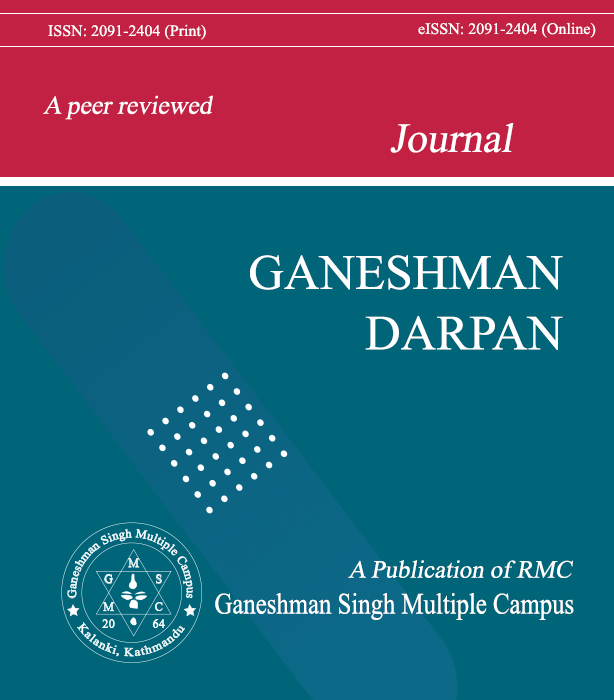Exploring the Fundamental Role of Algebra and Analysis in Modern Mathematics
DOI:
https://doi.org/10.3126/gd.v9i1.68542Keywords:
Mathematics, Topology,, Algebra, Analytical challenges, Mathematical development, Applications, NormAbstract
Algebra and analysis have played a key role in the rapid development of modern mathematics, moving it from its origins in mechanics and physics to becoming an independent and philosophical field. This paper explores how algebra and analysis are connected and how they work together to advance mathematical theory and practice. Algebra gives us the tools to understand mathematical systems, while analysis focuses on studying limits, continuity, differentiation, and integration to examine mathematical phenomena closely. The cooperation between algebra and analysis enriches both areas and drives progress in various mathematical fields.
Functional analysis, introduced by Volterra in 1887, represents a high point of mathematical abstraction. It combines ideas from algebra, analysis, and topology, acting as a meeting point where different areas of mathematics come together. This combination shapes the development of mathematics and its applications. Functional analysis shows mathematical precision and theoretical beauty, making it a key element that significantly influences human knowledge and mathematical exploration. This study examines the profound impact and significance of functional analysis in shaping the trajectory of Mathematical development and its applications across various domains.




